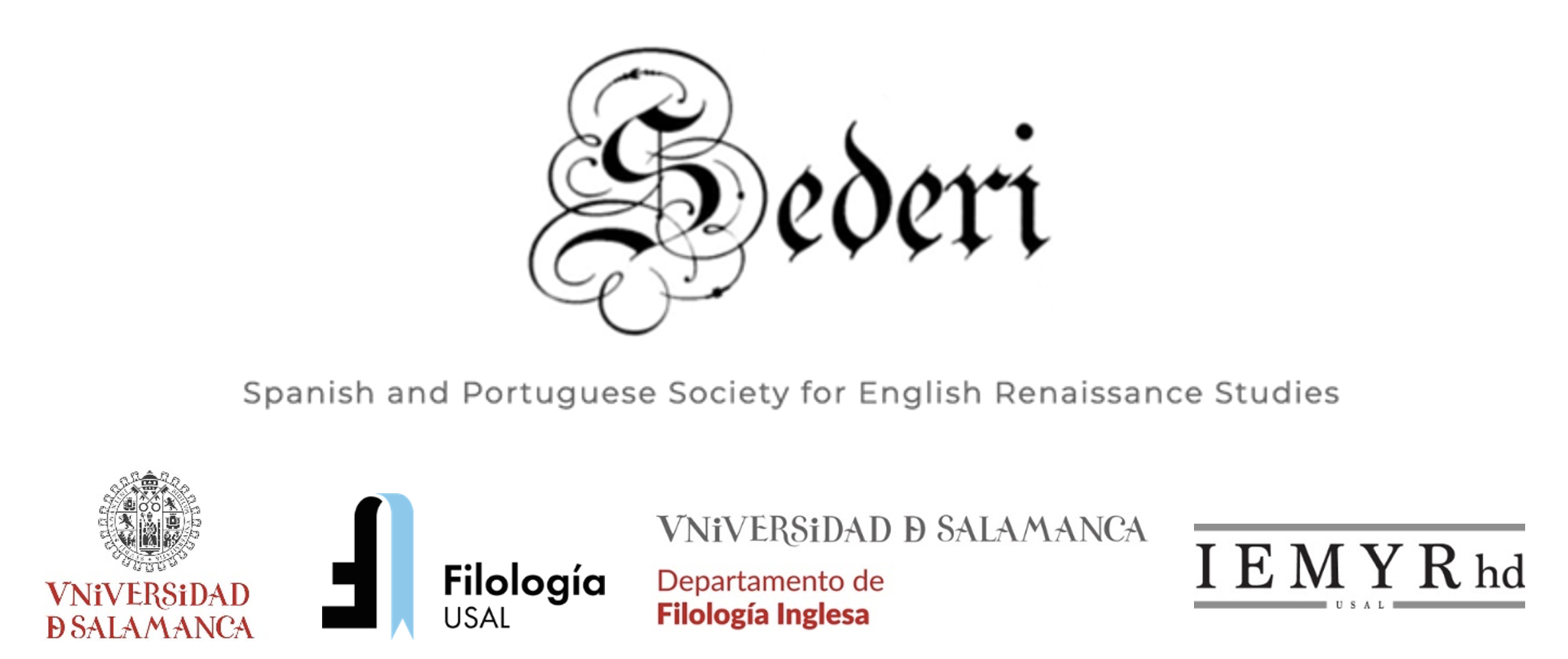
SEDERI 34
Cabinets of Curiosities: Collecting, Displaying, Consuming
Universidad de Salamanca, 24-26 April, 2024
We are pleased to announce the 34th SEDERI INTERNATIONAL CONFERENCE.
There is perhaps no better illustration of the appetite for knowledge and understanding of the known and unknown world in Renaissance Europe than the cabinet of curiosity: sometimes an individual furniture-piece, but more commonly a room, or a series of rooms (precursor of the modern museum) displaying objects arranged, juxtaposed, categorised – the whole (or parts) designed to convey a visual, material theatre of wonder: the Wunderkammer. This pan-European practice emblematizes – literally, associatively, metaphorically, allegorically – the Humanist making of meaning through acquisition, enquiry, presentation, consumption, and transmission. In these ‘epochs of space’ (Foucault) the viewer is captivated by ‘marvellous objects’ (Greenblatt), reframed, newly (de)contextualised, and fetishized.
As we are all too well aware, this phenomenon was far from benign: like modern museum collections, many of the objects acquired tell (if they could) a dark story of power and exploitation – traces, indeed, of Europe’s colonial past, with which we have yet to fully reckon; more broadly, the Cabinet of Curiosity cannot be detached from the socio-political milieu in which it flourished and signified. That said, the aim of this conference is to explore how we might apply the concept, as well as detect and analyse the practice: how, that is, the social activities underpinning the acquisition, display, and experience of these objects might be uncovered in a range of related cultural practices and material forms. Since the ‘Cabinet of Curiosity’ is not a label devised by modern scholars to account for a historical practice but an established concept in the Renaissance, it is possible to regard it as a transmutable and adaptable idea as much as delineating a precise phenomenon, such as the Wunderkammer we find celebrated in print illustrations. To that end, this conference is interested in how, alongside established examples of the form evoked in surviving images, or forerunners of the modern museum accompanying guide, such as A CATALOGUE Of all the Cheifest RARETIES In the Publick THEATER and ANATOMIE-HALL Of the University of LEYDEN (1695), the practice of collecting, displaying, consuming as process might be explored across the Renaissance landscape.
Proposals are invited that might address (but are not limited to) any of the following:
- Agents, Anatomy halls, Animals, Antiquities, Archaeology, Architecture, Arcana, Archaism, Archives, Art, Artefacts, Assemblage, Astrology, Automata
- Baroque, Biography, Body parts, Books, Botany, Buildings
- Cabinets, Categories, Catalogues, Ceremony, Churches, Classification, Codices, Collage, Collecting, Colonialism, Commodities, Commonplace books, Consumption and consumerism, Corpus, Correspondence, Cosmetics, Cultural identity, Curatorship and curating, Curios
- Designs, Devotional objects, Dialects, Diaries, Digital Humanities, Diorama, Dictionaries, Diplomacy, Displaying, Documents, Dolls’ Houses, Drama
- Ecocriticism, Effects, Engravings, Exhibitions, Exotica
- Fairs, Festivals, Fiction, Fishing, Flora and fauna
- Galleries, Gardens, Gift-giving
- Houses, Household decor, Hunting
- Illuminations, Illustrations, Images, Instruments, Inventories
- Kunstkammern
- Landscapes, Libraries, Lighting, Lists, Literature
- Manuals, Manuscripts, Maps, Medical treatises, Memento Mori, Menageries, Miniatures, Monsters, Money, Monuments, Museums
- Narrative, Natural Science, Networks, Notebooks
- Objects, Orientalism
- Patronage, Performance, Perpetual motion machines, Philosophy, Plants, Portraits, Poetry, Public sphere, Publishing
- Recipes, Relics, Ruins
- Scenes, Science, Skeletons, Souvenirs, Still life, Stories, Stuff
- Taxidermy, Technology, Theatres, Things, Trade, Trompe l’oeil paintings, Travel
- Uncanny
- Vanitas
- Wills, Wunderkammern
Contributions should take the following formats:
- Papers: 20-min.
- Panels: 90-min (consisting of three or four papers, chaired by the panel organizer).
- Posters: (90cm x 120cm) Posters should be devoted to research-in-progress. Posters will be on display during a special session (date: TBC) when authors will be able to discuss their work and receive feedback.
- Project Presentations: 20-min (Regional, National, International projects in receipt of funding within the last two years).
- Book Presentations: 10-15 min. Please include title, author(s), publisher, date of publication, and ISBN.
Participants are permitted to give only one paper (whether single- or co-authored). The language of the conference is English, and papers should engage with one or more of the areas that historically have been the focus of SEDERI’s work: English language, literature, and culture, in the early modern world.
Submissions should consist of:
- Full Name
- Title of the paper
- Abstract (200-300 words)
- Your institutional affiliation
- Status: Prof. / Dr. / Ph. D. candidate / M. A. candidate / Other
- Your SEDERI membership status (member, non-member, application submitted)
This should be sent to sederi24@usal.es. The deadline for submitting proposals is 31/01/2024.
Conference Fees
There is no Early Bird Registration but the fees this year have been kept to SEDERI 33 (Valencia, 2023) Early Bird rates:
| SEDERI Member | 110€ |
| Non-SEDERI Member | 140€ |
| SEDERI Member (postgraduate) | 60€ |
| Non-SEDERI Member (postgraduate) | 70€ |
| USAL Student | 30€ |
Â
Registration
You can register in the following link:
Any queries? Contact us at sederi24@usal.es.
Â
SEDERI Yearbook
Participants at the conference are encouraged to submit their contributions to SEDERI, the Yearbook of the Spanish and Portuguese Society for English Renaissance Studies. This is an annual publication devoted to current criticism and scholarship on Early Modern English Studies. It is peer-reviewed by external readers, following a double-blind policy. It is published in paper and online, in open access. The call for papers remains open for submissions year-round. SEDERI welcomes ARTICLES, NOTES and BOOK and PERFORMANCE REVIEWS.Â
Â
The Organizing Committee
Mark Hutchings
Nora RodrÃguez Loro
Javier Ruano GarcÃa
Paula Barba Guerrero
